LATEST NEWS
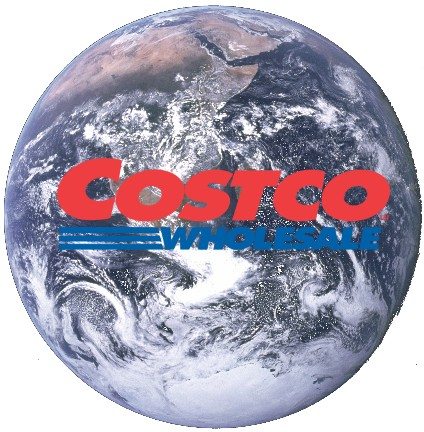
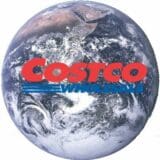
A recent weekend became a lesson in the new global economy. For two days I emptied out much of the accumulated “stuff” from my garage – dishes, pots and pans that my kids used in their student days; excess furniture; framed posters, old clothes and much more. Some of it went to the Salvation Army, while I took broken things to a recycling center. Obviously I had too many possessions.
On a Saturday afternoon I ventured to Costco for the first time in 10 years. Hundreds of shoppers were busy filling their super-sized carts with large quantities of…..well…everything. Household supplies, bulk food, cleaning fluids, soda, clothing, electronics, furniture. But in quantities you never dreamed you needed (and probably don’t) and for amazingly low per-unit prices. Most of the manufactured goods seemed to come from China.
That Sunday night I rented Last Train Home,
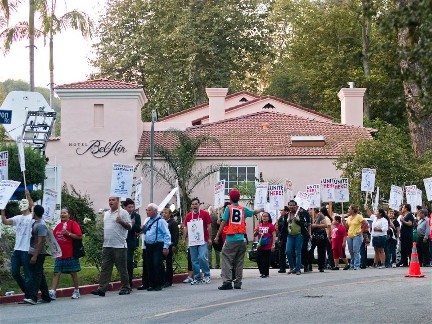

In 1985, my parents began their journey from the rural mountains of Honduras to the United States of America—the land of opportunity. They endured six months of starvation, loneliness and fear of la migra in order to realize their own American dream of stability and prosperity.
My parents took their first job opportunities the moment they came their way — when they did not understand English, had only a Honduran elementary education and needed a source of income fast. My dad became a full-time auto mechanic and my mom a part-time waitress. Although both jobs paid relatively low, had no benefits and called for exhaustingly long hours, my parents continued to keep their heads high and managed to provide the basic necessities for my siblings and myself.
As a first-generation Honduran-American living in Northeast Los Angeles, I am constantly reminded of the struggles and injustices workers face daily. I see discrimination,
» Read more about: Five-Star Scrooge: Hotel Bel-Air Keeps Union Out »


I have been a member of the L.A. Community Redevelopment Agency board of commissioners for nine years. That means I’m one of seven decision-makers overseeing the work of the city’s multimillion dollar economic development agency. All of my experience from those nine years can be summarized in the answer to one question: What is a “good deal?”
When is the investment of scarce taxpayer dollars in private development projects a good idea? I know that the answer for some is “never.” That is not – and has never — been my view, (which is why I have been derided by some as a “redevelopment thug.” Fundamentally, the question of the investment worthiness of private economic development projects is one about good government, and how our government should interact with the private market.
I bring this up now because public subsidies to private industry were in the news again recently.
» Read more about: Best Laid Plans: Getting the Biggest Bang for Tax Bucks »
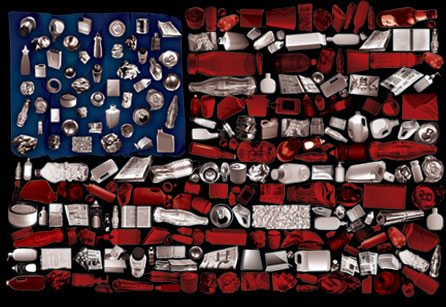

Recycling may be all the rage these days, but here in L.A. and across the country vast amounts of recyclable goods end up in landfills every year.
Turns out we’re throwing away a lot more than bottles, cans and newspapers. Here’s why: recycling equals jobs.
The recent report More Jobs, Less Pollution: Growing the Recycling Economy in the U.S., commissioned by the national Blue Green Alliance and prepared by the Boston-based Tellus Institute, builds a compelling case for thinking twice before throwing that old carpet into the trash. According to the report, increasing the national diversion and recycling rate to 75 percent by 2030 would create over 2.3 million new jobs.
Reuse and recycling — from collection to processing and manufacturing — is much more labor intensive than landfilling and incineration. Take all of those aluminum cans you redeemed this year,
» Read more about: Throwing Away Jobs: How More Recycling Could Boost the Economy »
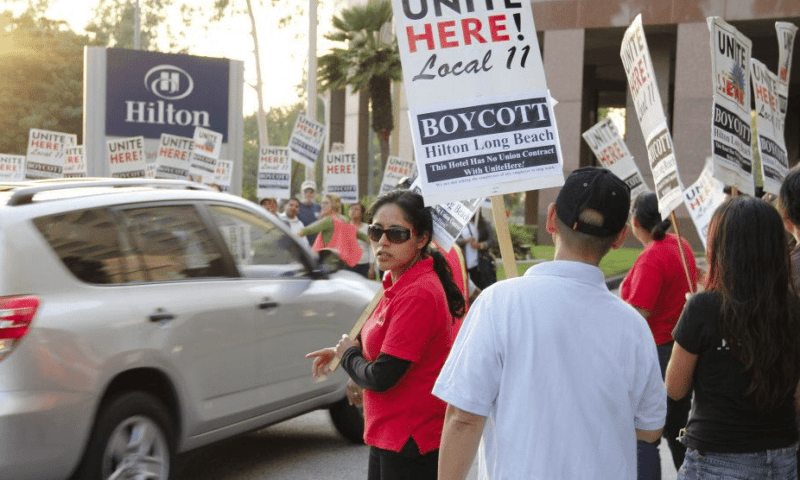
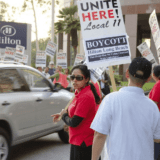
Editor’s Note: The Press-Telegram holds an annual awards ceremony, “Amazing Women of Long Beach.” This year, the newspaper chose to host the event at the worker-boycotted Hilton Long Beach. Responding to their choice to hold the event there, the Long Beach Coalition for Good Jobs and a Healthy Community chose to host a simultaneous event outside the hotel honoring “Inspiring Activist Women of Long Beach.” Some of the activist honorees were slated to receive an award from the Press-Telegram inside the hotel but declined – choosing to support the boycott instead. Daleth Caspeta – a Dream Act Activist and honoree – shares her experience with The Frying Pan.
“When the Nazis came for the communists, I remained silent; I was not a communist. When they locked up the social democrats, I remained silent; I was not a social democrat. When they came for the trade unionists,
» Read more about: Stop the Presses: An Activist Takes a Stand »


Reading the L.A. Business Journal recently, I was a bit taken aback to see a Page Three piece from Charles Crumpley describing a recent trade mission by local business leaders.
These are common, of course, but their destination wasn’t. Apparently long-time LAANE and labor antagonist Carol Schatz and Chamber of Commerce head Gary Toebben took a trip to Cuba. Not only that, Schatz was a key organizer of the event.
Perhaps more shockingly, this was not her first trip. Indeed, she went back in 2003, when she was the wife of Noam Chomsky.
Okay, maybe that’s a different person, though if memory serves (and as time marches on, it does less and less), Carol’s something of a “red-diaper baby. “
Still, I’ve long wondered about the sanity of many of my friends who visit Cuba looking for inspiration.


Zombies have long provided both escapist fare as well as incisive social commentary. Romero’s Night of the Living Dead (1968) dealt with race relations in America, while his Dawn of the Dead (1978) addressed American consumerism. We’re currently going through another zombiessance, and while AMC’s The Walking Dead may not be Exhibit A, it may be the apotheosis of the current zombie moment. (Or at least it was in season one; don’t get me started on how disappointing this current season has been.)
The show examines how we (re-)build some semblance of a civilization in the wake of a horrifying event that has decimated the country. At its best, it’s filled with the tension that marks a bare struggle for survival; it never lets you forget that death (and worse) is ever-present.
In a recent episode (minor spoiler alert!),
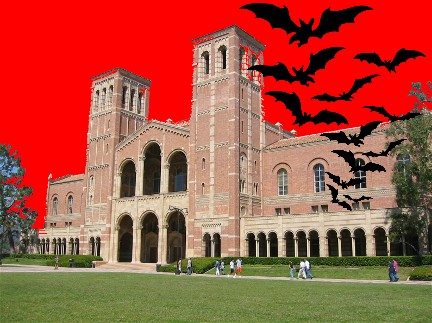

Budget cuts are bleeding the University of California system. Tuition and fees are skyrocketing. Admission rates of California residents declined this year at all but one of the university’s 10 campuses. (California also operates 23 colleges known as state universities.) All this seems a far cry from the university’s trajectory set more than 50 years ago, and it is turning high school students like myself away from the schools that once seemed so appealing.
Now in the heat of college applications season, many seniors are wondering if the U.C.s are worth attending at all. Earlier this week the university’s regents, fearing massive demonstrations, cancelled a San Francisco meeting scheduled to discuss raising U.C. student fees. Today at Cal State University Long Beach, as protesters chanted outside the chancellor’s office, trustees voted to raise state university tuitions yet again.
When tuition hikes are regular news and corresponding student sit-ins and protests are commonplace,


When my parents started to work longer and longer hours to support their five kids, they sat me down and told me I had to start taking the bus to school. At 11 years old, this was the best news I could have imagined. Yes, I had to wake up at 6 am to get ready for school and catch the 212 and 33 bus lines, but that sense of independence I got from being able to “roam” around the city was priceless. (Well, almost…if you don’t include the price of a bus pass.) I learned to take the bus to Hollywood, the Montebello Mall, Santa Monica — places that seemed so far away from home in South LA.
It wasn’t always fun, of course: I have many memories of sitting at the La Brea/Venice bus bench for 45 minutes trying to catch the Line 212 after a long school day. I eventually learned to cope by reading a lot,
» Read more about: Mass Appeal: LA’s New Embrace of Public Transit »
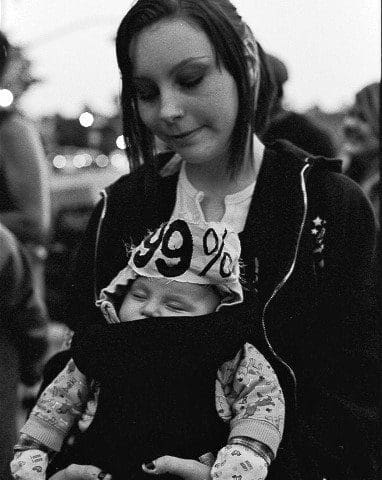

While the Frying Pan wholly endorses the goals and the ideals of the Occupy movement, there is considerable diversity of opinion here about how Occupy actually plays out on the streets, sidewalks and lawns across the country. Indeed, there’s quite a bit of diversity of opinion among supporters everywhere.
We worry that now — as cops in Oakland, Portland, Salt Lake City, and now New York move in on occupiers — the focus will shift from income inequality to the right to occupy. This is probably not a step forward for a movement which needs to think about its next steps as well as its end game.
Into this landscape comes a suggestion from Kalle Lasn, the founder of Adbusters and originator of the Occupy movement. He proposes that “it might be time for the protesters to “declare ‘victory’ ” and scale back the camps before winter sets in.”
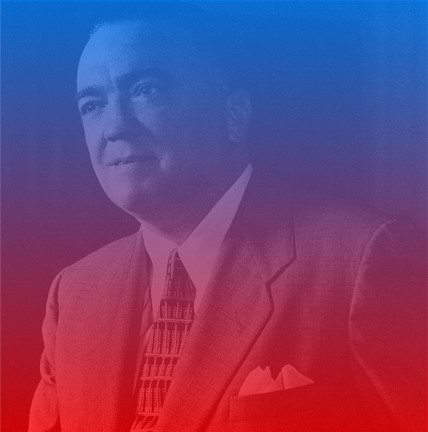

First my boss at the suburban YMCA told me I was fired as a youth worker. Then he said he had been visited by a federal agent who told him I had an FBI file that was a file-drawer deep. It was 1968 Chicago, and the Democratic Convention was around the corner; parents were freaked that their teenagers would participate.
As good as Clint Eastwood’s new film, J. Edgar is, it neglects to portray the climate of fear that Hoover’s FBI historically created for ordinary American activists, particularly from the 1950s until his death in 1972. From visits to homes by suited men trying to “get information,” to intimations of “subversion” to employers, landlords and colleagues, the FBI wreaked havoc on the lives of thousands of law-abiding Americans in its single-minded campaign to weaken dissent within American society. As explained by Wikipedia,


People clutched their green, numbered tickets for what may have been the most coveted event at the Los Angeles Sports Arena this year. It was still in the early morning hours of Friday, October 21, 2011. The ticket holders were children, teens, parents with infants, students, middle-age folk and senior citizens from various ethnic backgrounds. Some people looked like they took the day off work or class; some looked like they may have underemployed or unemployed, and many may have been homeless. A music concert didn’t draw the 3,571 people from diverse backgrounds to the Los Angeles Sports Arena for four days. It was the chance for free medical care at CareNOW Los Angeles, organized by CareNow, a volunteer-based organization that provides medical services to underserved populations.
I had read about this event last year and was struck by two dueling emotions. On one hand I was deeply touched that doctors,
» Read more about: Health Care: What Ails L.A.’s Uninsured? »
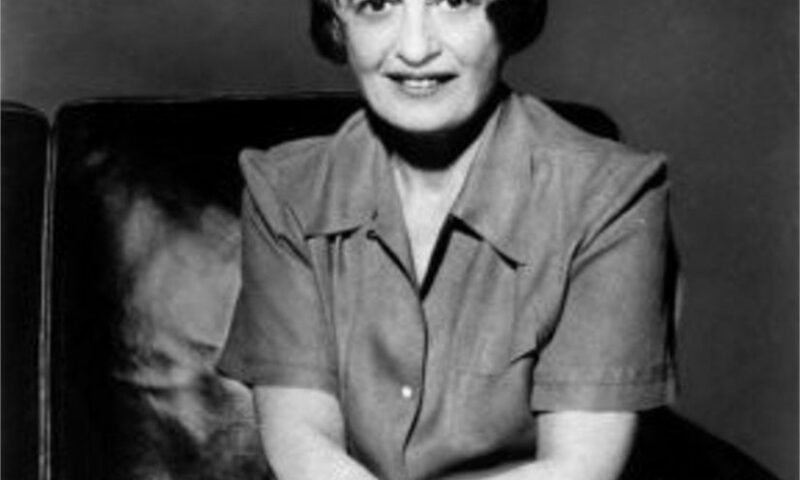

People in our apartment building don’t have to guess the shape of my and my wife’s politics. A weathered NO WAR sign stands in front of our doorway and on one wall there’s a flag with an image of planet Earth, taken from space, on a blue field that’s hung there since 9/11. Hard to miss. So I was taken aback when a three-page printout from an NPR interview was anonymously placed under our doormat. The interview was with a self-described “venture capitalist” and fellow at a libertarian think tank.
This promoter of Ayn Rand’s philosophy argued that it was venture capitalists like himself who create jobs, not government. Like most of Rand’s ideas this is about half right. Actually, in this case, a third right. Ernesto Sirolli, who has probably helped more depressed areas of the globe produce jobs than any community developer alive, says it takes three elements to start a business: someone passionate about a dream,
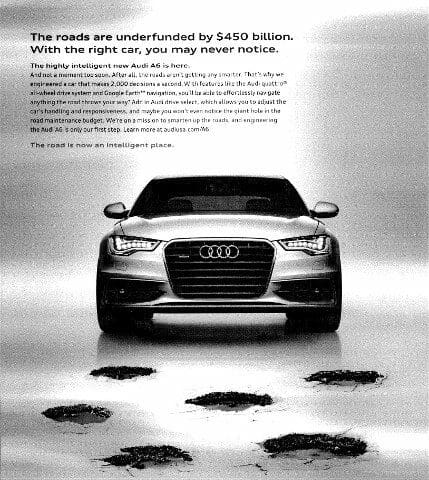
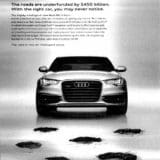
One of my weekend pleasures is a morning with the Sunday New York Times. I used to feel reading it was disloyal to my hometown, Los Angeles. But as the L.A. Times dramatically shrank and its reporting focus narrowed, I found that there was a lot of news I ended up knowing nothing about. The New York Times, whose heft hasn’t diminished, makes me feel smarter, broadens my world perspective, has editorials that don’t leave me fuming and, as an added bonus, helps me stay abreast of the well-heeled residents of New York– the ones who buy $4.5 million, 6,000 square-foot apartments on the 20th floor of Upper East Side historic buildings; who pass on $20,000 watches to their sons; and who are in the market for summer mansions in the Hamptons or rural Connecticut.
However on a recent weekend an ad in the Times Magazine made me feel that by enjoying the paper I was deserting the American people.


I’m not in the habit of critiquing economic analytical methods in obscure reports—really, I’m not—but there’s something about this one that grates. City Hall’s bending over backward to pander (or at least, they were) to the Occupy L.A. people outside its door, and at the same time considering a tax break that will potentially further devastate the city budget.
The report in question is an analysis by USC Accounting Professor Charles Swenson, and the tax break is the proposed elimination of the city’s business tax. Swenson argues that if the city does so, forgoing $424 million in revenues, it will actually generate 131,000 jobs and generate an additional $263 million above and beyond what the business tax now brings in.
How this happens—other than voodoo – is entirely unclear from the report. Swenson simply presents a series of tables with a series of assertions,
» Read more about: L.A.’s Business Tax: That Voodoo That You Do »


A lot of people are talking about leadership these days. Different types of leaders. The need for visionary leadership. The excitement around new young leadership and ideas about when leadership begins.
In my case, I’ve been thinking about how to recruit and develop new leaders for over 30 years, even when I was a new leader. I’m 51 years old and co-founded the Los Angeles Alliance for a New Economy (LAANE — the organization that sponsors this blog) in 1993; I have been the executive director ever since. I have recruited and developed hundreds of staff members for LAANE over the years, and many of these people have become some of the most inspirational leaders that I have ever known.
Which is why I have decided to step aside as LAANE’s executive director starting in February of next year.
» Read more about: The Long Goodbye: Why I’m Stepping Down But Not Going Away »
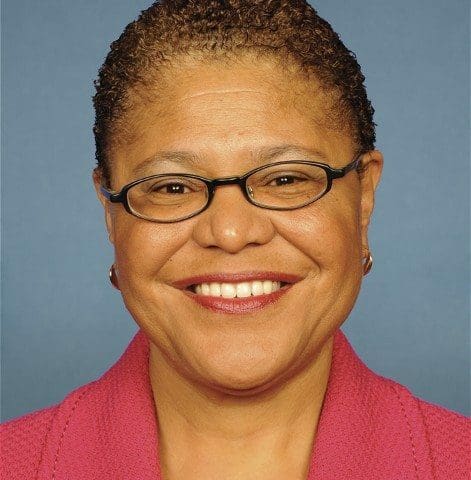

We all know that there’s a massive jobs crisis in our country, but there’s a real debate about how to address it. In Washington, many supposedly serious people suggest that we can create jobs through cutting taxes for corporations, dismantling what’s left of the safety net and rolling back regulations to 2008 standards — not exactly a banner year for job growth. With the Tea Party firmly in control of the House and with elections right around the corner, the mantra for many lawmakers has become “let the market do its magic.” The question for this segment of the Beltway crowd isn’t what government should do, but whether government should do anything at all.
Here in the real world, things are a little bit different. The Occupy movement, which locally has a tent encampment at L.A. City Hall, is a sign of the times. In neighborhoods around the country, and particularly in low-income communities of color like South L.A.,
» Read more about: Jobs Search: From the Streets to Congress — and Back »


The symptoms began only four days into my month-long paternity leave. First it was a vague craving, and before long it had crystallized into a very specific need: I just had to find out what was happening back at the office.
Yes, the miraculous newborn in the other room should have offered more than enough fulfillment. But I was jonesing for something not even she could provide.
The problem went way beyond my Crackberry. Truth is, I felt compelled to check work e-mail and even send more than a few to affirm that, beyond my new identity as a dad, I was still relevant — i.e., a loyal, productive employee.
You might be tempted to view my behavior as a bizarre idiosyncrasy (some truth there), or as a natural response to the conditions of my employment — decent wages, extremely generous benefits, flexible schedule, a congenial work environment.
But the fact is,
» Read more about: Diapers, Dollars and Identity: Confessions of a New Father »
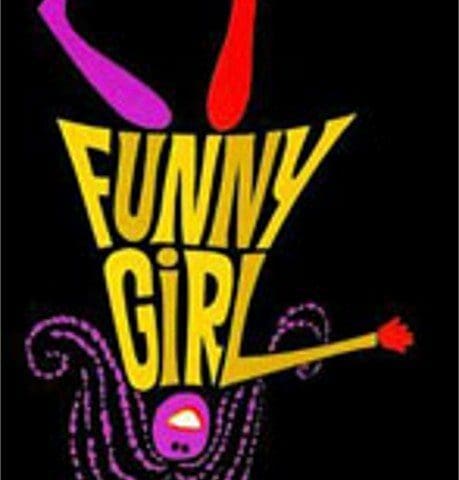

“Given the current economic climate,” read this afternoon’s press release from Funny Girl producer Bob Boyett, “many Broadway producing investors have found it impossible to maintain their standard level of financial commitment.”
In other words, the revival of the Jule Styne-Bob Merrill Broadway blockbuster that had starred Barbra Streisand in 1964, and gave us the song “People,” is dead — as far as Los Angeles is concerned. The new show, starring Six Feet Under‘s Lauren Ambrose as comedienne Fanny Brice, was to open in downtown L.A.’s Ahmanson Theater in January — the springboard to an April Broadway run.
Dream on, with this economy, though.
As the New York Times noted, “Pulling the plug on a previously announced Broadway production is rare, especially when (as in this case) theaters have been booked and actors cast.”
Michael Ritchie,
» Read more about: Breaking News: Economy Kills “Funny Girl” »


Though I deal with economic issues all day, I am not an economist and I have no formal economic training. That’s one of the reasons that I really like NPR’s Planet Money podcast. Yes, it has a little too much of a free-market bent for my tastes, but it does a very good job of explaining basic economic issues in lay language and, even more important, it is intellectually honest (which you can’t say about some key business media).
Planet Money recently aired a provocative episode called “Will economic growth destroy the planet?” Their jumping-off point was ostensibly the (purported) trade-off between economic and environmental health, but I found the real lesson in an important insight about how economists think and talk.
Let’s assume that we all agree that economic growth is a good thing. Almost every day, we see some headline or another touting the promise of a government policy or tax incentive or corporate investment to create jobs,
» Read more about: Learning How NOT to Talk Like an Economist »